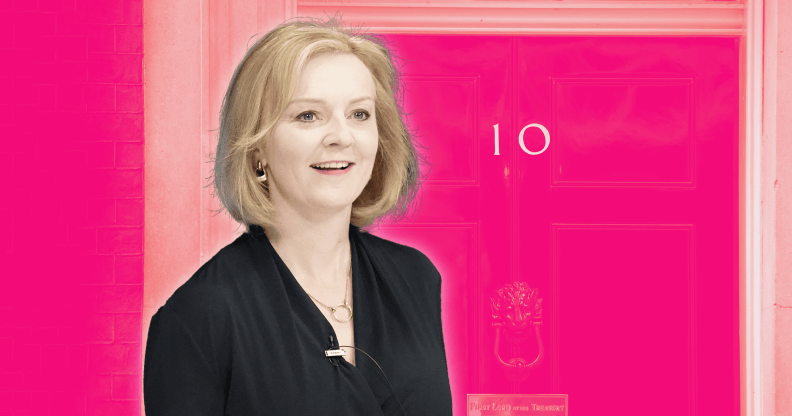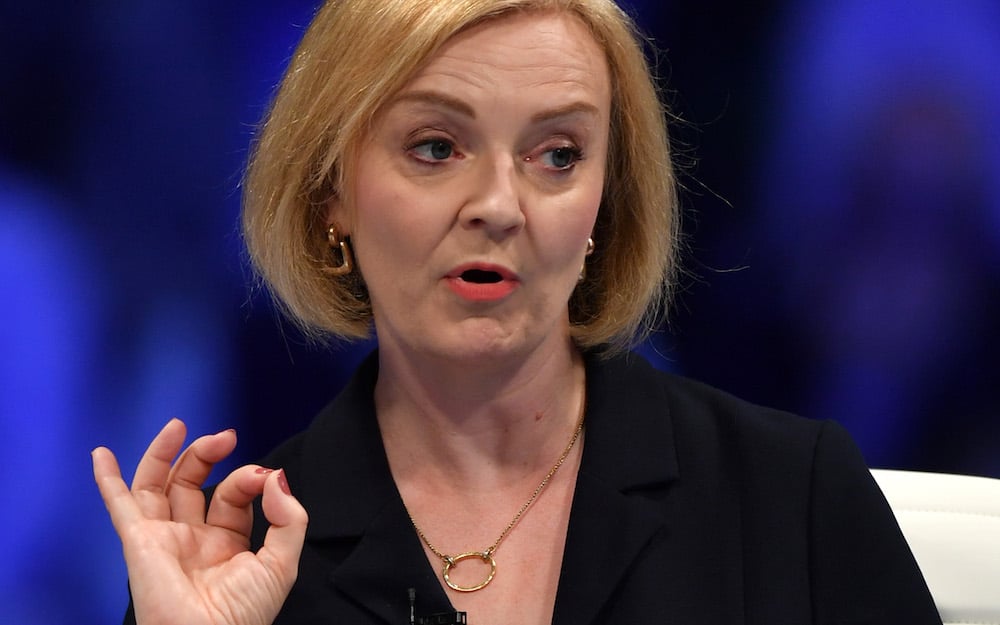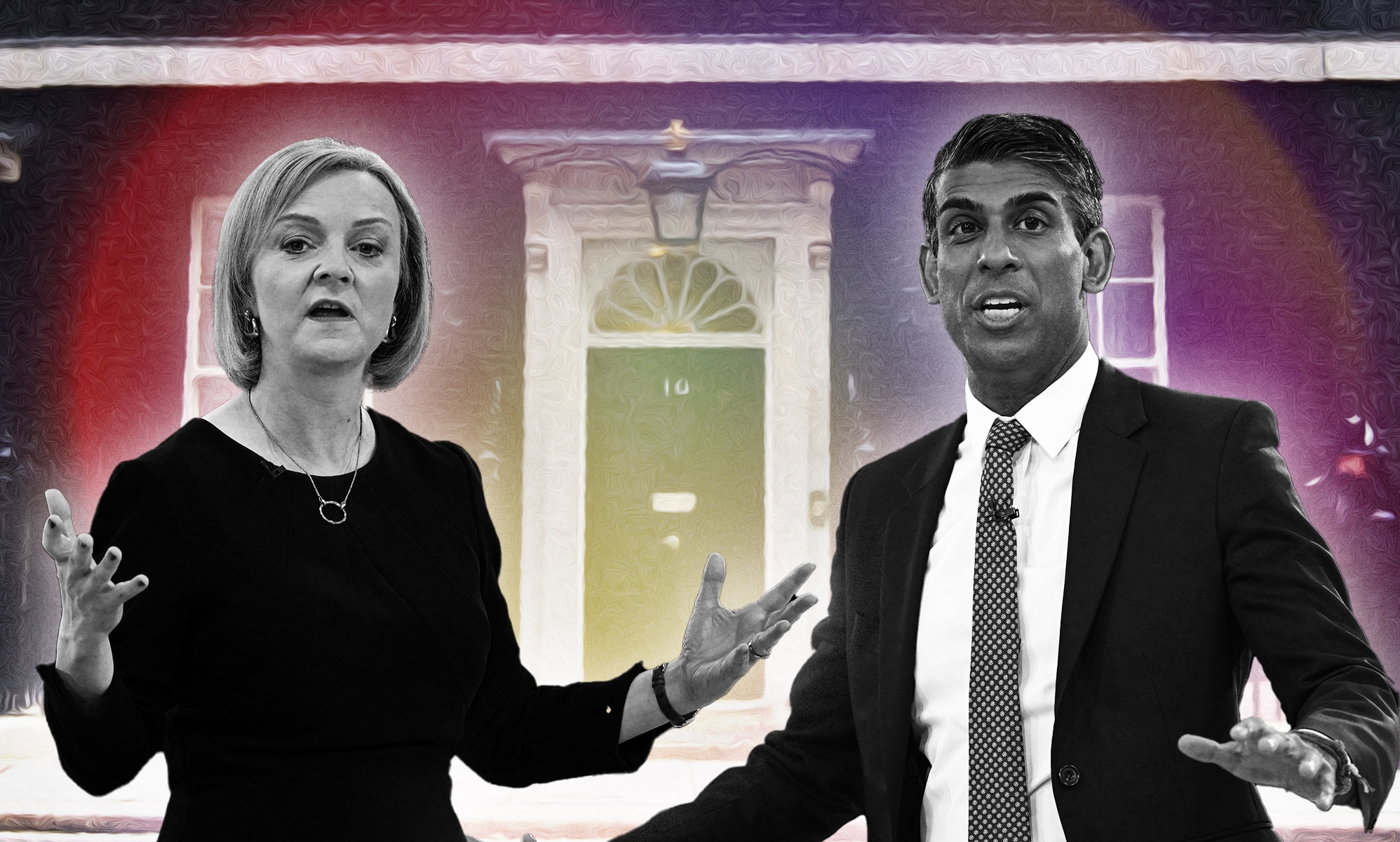Liz Truss named UK’s next prime minister as toxic Tory leadership battle finally concludes

Liz Truss will be the UK’s next prime minister. (Getty)
Liz Truss has been named the next prime minister of the UK after winning the Tory leadership race.
The foreign secretary beat Rishi Sunak to become the next Conservative Party leader, winning 81,326 votes to Sunak’s 60,399.
Sir Graham Brady, chair of the 1922 committee of backbenchers, announced the results on Monday (5 September) shortly after 12.30pm.
Truss thanked her fellow candidates, including Rishi Sunak, and paid tribute to outgoing prime minister Boris Johson.
“Boris you got Brexit done, you crushed Jeremy Corbyn, you rolled out the vaccine and you stood up to Vladimir Putin,” she said. “You are admired from Kyiv to Carlisle.”
Truss said she would “deliver a great victory for the Conservative Party in 2024”, immediately putting the party on an election footing.
“During this leadership campaign, I campaigned as a Conservative, and I will govern as a Conservative,” she said, to loud cheers.
“I know that our beliefs resonate with the British people. Our beliefs in freedom, in the ability to control your own life, in low taxes, in personal responsibility.”
Truss will enter No 10 after visiting the Queen in Balmoral on Tuesday (6 September) and is expected to immediately begin announcing her cabinet.
She becomes the UK’s third prime minister in six years, as well as the third female prime minister in Britain’s history.
Labour leader Keir Starmer congratulated Truss but called into question her party’s track record in government.
“I’d like to congratulate our next prime minister Liz Truss as she prepares for office.
“But after 12 years of the Tories all we have to show for it is low wages, high prices, and a Tory cost of living crisis. Only Labour can deliver the fresh start our country needs.”
I'd like to congratulate our next Prime Minister Liz Truss as she prepares for office.
But after 12 years of the Tories all we have to show for it is low wages, high prices, and a Tory cost of living crisis.
Only Labour can deliver the fresh start our country needs.
— Keir Starmer (@Keir_Starmer) September 5, 2022
Liberal Democrats leader Ed Davey said Truss’ leadership would lead to “more of the same crisis and chaos” that had been seen under Johnson.
“From the cost of living emergency to the NHS crisis, the Conservatives have shown they don’t care, and have no plan. It’s time to scrap the energy price hike then call a general election,” he said.
Under Liz Truss, we're set to see more of the same crisis and chaos as under Boris Johnson. From the cost of living emergency to the NHS crisis, the Conservatives have shown they don’t care, and have no plan.
It's time to scrap the energy price hike then call a General Election.— Ed Davey (@EdwardJDavey) September 5, 2022
Truss’ first test will be the cost of living crisis that has engulfed the UK.
In an interview with the BBC’s Laura Kuenssberg on Sunday (4 September) – the only interview the next prime minister gave throughout the leadership race – she vowed to address energy bills within her first week in office.
She also promised to make the UK a low-tax nation, defending a promised tax cut that would benefit the rich, and saying “to look at everything through the lens of redistribution… is wrong”.

Liz Truss speaks on stage at the Birmingham hustings on 23 August. (Getty/ Anthony Devlin)
On LGBTQ+ rights, she also picks up Boris Johnson’s incomplete promise to ban conversion therapy, and the responsibility of addressing the trans healthcare crisis, among other things.
As minister for women and equalities, Truss had backed banning conversion therapy, and was reportedly blindsided by Johnson’s since-aborted decision to drop a legislative ban, and to ultimately exclude trans people from it.
However, she was widely criticised for scrapping plans to reform the Gender Recognition Act (GRA) to make the path to legal recognition easier for trans people.
Throughout the race, she has indicated that her government will spell bad news for trans people.
Both Truss and Sunak denied that a trans woman is a woman at a hustings, while Truss faced backlash when she expressed concern about gender-affirming care for minors.
Former Tory MPs told PinkNews that Truss and Sunak were “pandering to bigots” by pushing anti-trans views throughout the race.
From the offset, Truss was seen as the Boris Johnson continuity candidate. Initially it seemed as though she would be outgunned by former defence secretary Penny Mordaunt for a place on the final ballot – Rishi Sunak was always seen as the favourite among MPs, with the two women battling for second place
But Mordaunt came unstuck early on in the race, with Truss eventually pipping her to the post. From then on, Truss quickly became the favourite to win as the leadership race was opened up to the entire Tory membership.

Either Liz Truss or Rishi Sunak will be Britain’s next prime minister. (Getty)
Liz Truss failed to advance LGBTQ+ rights in government
In addition to her role as foreign secretary, Truss has also served as minister for women and equalities since 2019.
It was in that capacity that she ultimately scrapped plans to reform the Gender Recognition Act (GRA) – instead of introducing self-identification, she digitised the process and reduced the fee.
Plans were shelved despite the fact that a public consultation completed under Theresa May’s leadership showed strong support for reform.
Truss failed to ban conversion therapy during her time in the equalities brief. The practice, which has been widely discredited, remains legal in the UK despite the fact that the UK government first promised to make it illegal in 2018.
View this post on Instagram
Since then, there has been much hand-wringing over what the ban should look like. Internal debates within government focused on whether trans people should be included in the ban and whether there should be exemptions for religious groups.
In the end, Johnson reportedly left Truss “blindsided” when Downing Street announced that trans people would be excluded from the ban.
Just months after that controversy, Johnson finally resigned as prime minister following a series of political scandals. No conversion therapy ban was enacted during his time in office, meaning the issue will once again fall to Truss.

